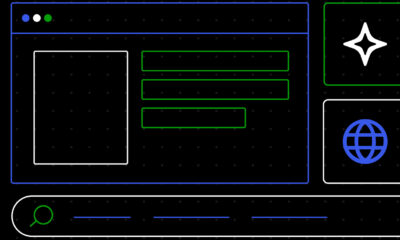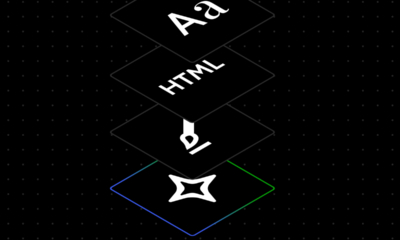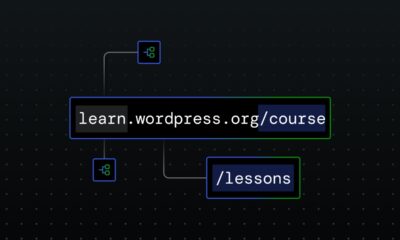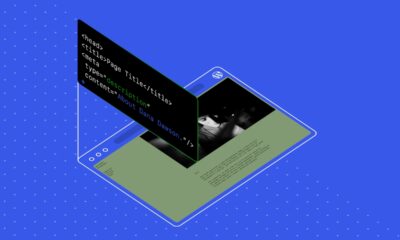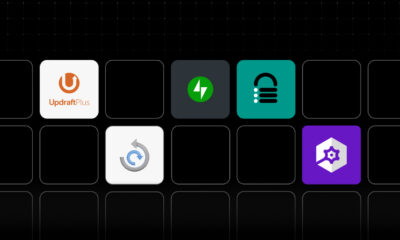WORDPRESS
Your Complete Guide for 2023

In this post, you learn the exact steps to build a free sales funnel using a tool called Systeme.
We’ll look at each component that makes a sales funnel work and drives consistent sales.
Once your sales funnel is built, you’ll be able to focus on driving traffic to it, nurturing your email list, and growing your business.
Let’s get started.
What is a (Free) Sales Funnel, and Why Do You Need One?
A sales funnel is a series of pages that takes visitors through a customer journey, from an uninformed stranger to a loyal customer.
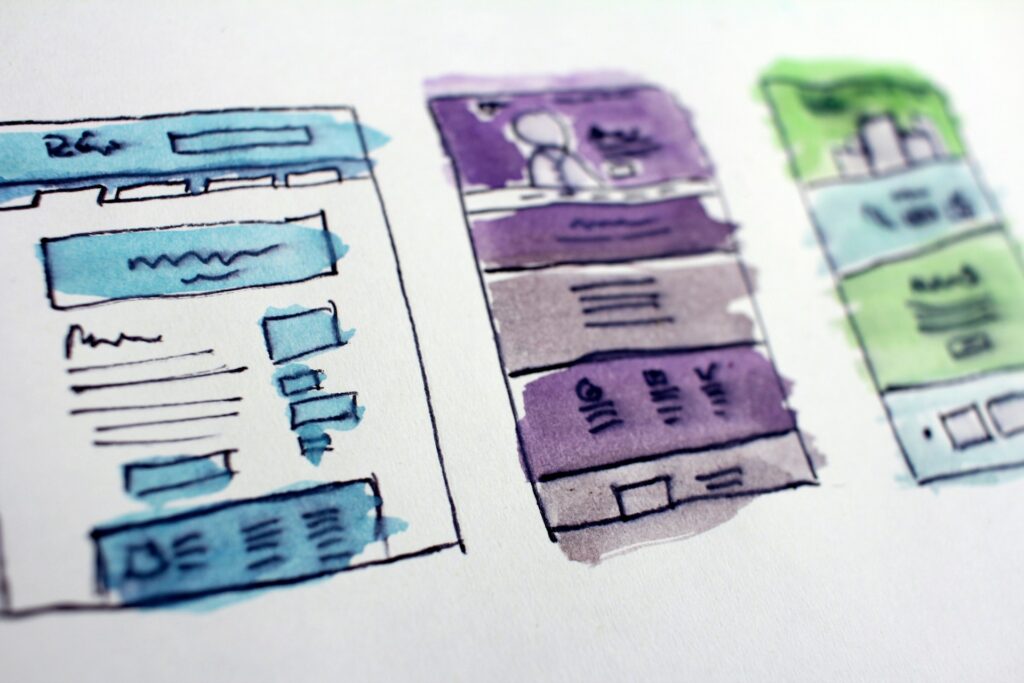
Depending on where they start in the funnel sequence, they’re designed to strategically influence the prospect to become a lead and/or customer.
A funnel will typically move prospects through 4 stages of awareness:
- Awareness: Becoming aware of a problem they want to solve. This could be your blog or social media presence
- Interest: Seeking a solution for the problem. This might involve downloading a free lead magnet.
- Desire: Becoming interested in what you have to offer by interacting more with your brand.
- Action: Buying a product, course, or service you’re offering.
A sales funnel is important because it enables the ability to take people through each of these stages, resulting in much higher conversions than sending them to a single order form.
8 Components of a Free Sales Funnel
There are many components that make up an effective sales funnel.
Technically, you only need a product, a checkout page, and a payment processor, but this isn’t likely to give the best results.
Here, I’ve outlined everything you need to create the ultimate free sales funnel.
1. A Product or Service
Not to state the obvious, but you’ll need a product or service to sell, which you probably already have.
But if you don’t, you could start with a PLR product to create a Minimum Viable Product (MVP) and test things out first.
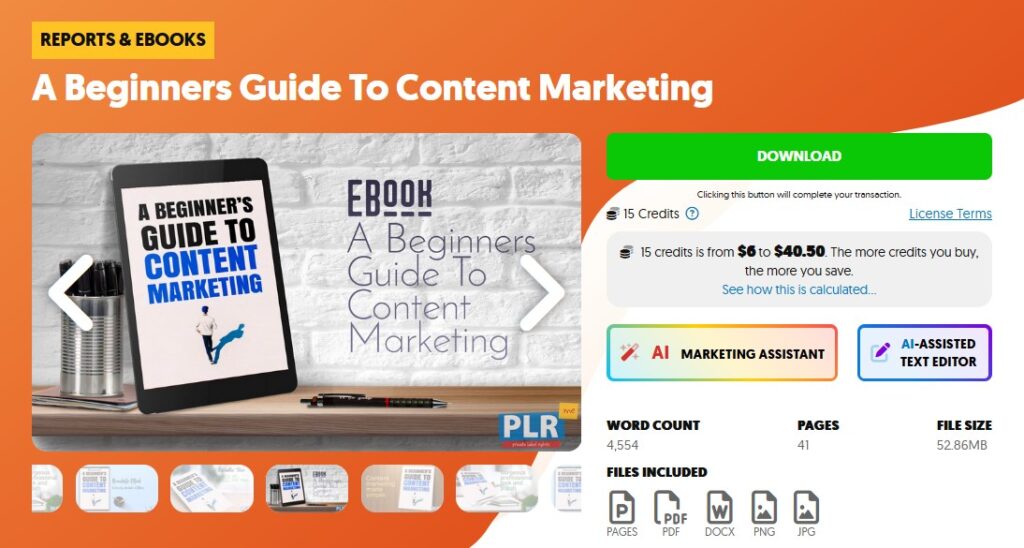

PLR.me is a great place to buy private-label products that you can use to sell as your own.
2. Landing Page (Optional)
The landing page is where you collect email addresses with a free lead magnet. It can also be used as a waiting list if you have a scheduled product launch funnel.
It’s an optional step because you can send people straight to the sales page if your audience already knows you and what you sell.
However, a squeeze page or landing page will usually convert higher because you’re offering something for free in return for the visitor’s email address.
3. Email Automation (Optional)
Email automation is then set up to nurture your list of subscribers and to sometimes deliver your lead magnet.
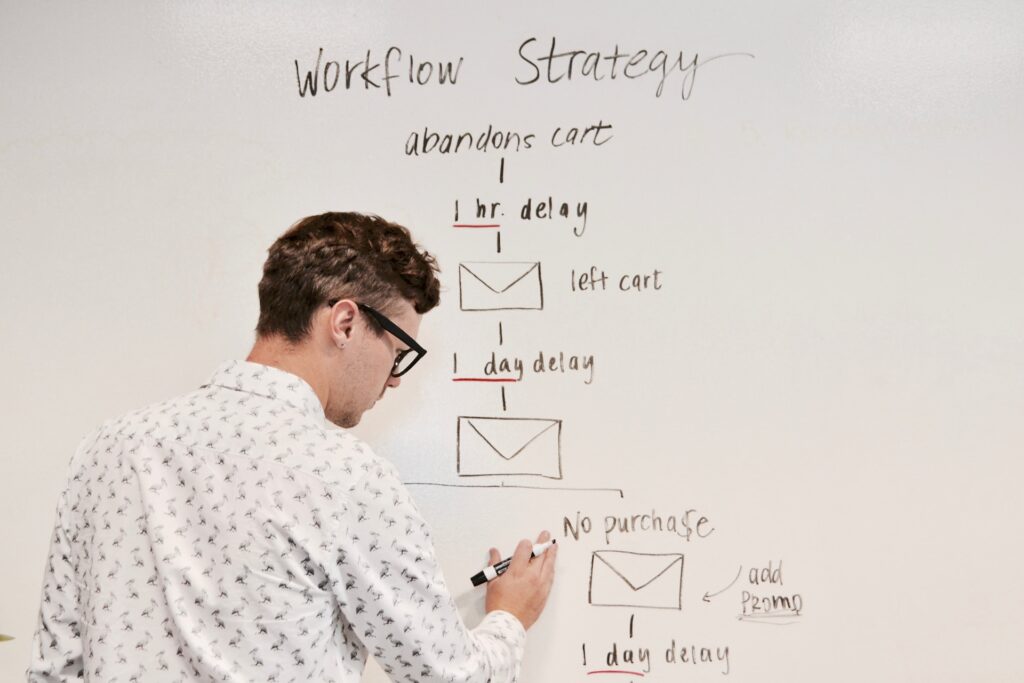

You can have multiple email sequences for different stages of the funnel.
For example, a welcome sequence after the delivery of the lead magnet shares valuable lessons for several days with an offer for a product at the end.
Another email sequence could be triggered for people who didn’t purchase a product or an upsell.
Having segmented email sequences for different leads offers personalized communication, resulting in higher conversion.
4. Sales Page
The sales page is where you write short or long-form copy with details of what you’re selling.
An effective strategy is to send people to a thank you page that also acts as a sales page.
You can offer new subscribers a product at a discounted rate, which can often convert well because the leads are warmer.
5. Checkout
The checkout page consists of an order form for people to enter their details and make a payment.
6. Payment Processor
A payment processor processes the transaction between you and the customer.


Many sales funnel builders process payments for you, whereas others will let you connect your own, such as Stripe or PayPal.
Even though this article is about building a free sales funnel, it’s important to note that you’ll still need to pay for transaction fees.
Funnel sites that charge their own fees will take a cut of the order, which is where they make their money.
Therefore, it’s usually a much cheaper option to use your own payment processor.
7. Upsells Order Bumps (Optional)
Upsells are extra offers that are made immediately after the order form because these leads are hot and more likely to buy something else.
They’re very effective because all they require for the new customer to purchase them is to click a button.
They don’t need to go through the checkout process again, causing less friction to make another buying decision.
This makes upsells a great way of increasing the overall Average Order Value (AOV).
8. Traffic
The last component of a sales funnel is essential, and that is traffic.
In other words, a potential customer.
You can drive traffic from a variety of sources, such as:
- Ads
- Social media
- Organic search (SEO)
- Or an email list
You can also send traffic to different stages of the marketing funnel.
For example, cold traffic who have never heard of your offer will need to be sent to the landing page.
Hot traffic is people who already know your offer, so they can be sent to the sales page or even the checkout page.
Using ads to send traffic is by far the quickest strategy. You can test different copy in your ads and on the landing page until you get a good conversion rate.
Social media will require an engaged audience to get enough traffic, but this type of traffic can usually convert better than ads, so you won’t need as much.
Organic search is traffic sent to your funnel from people who have searched for something in search engines. This will require you to create blog content that promotes your free offer or promotes your product directly.
Organic traffic is typically more converting than social media traffic because they are already seeking a solution.
Lastly, traffic from an email list has the best conversion rates because they have already shown interest and made a commitment by subscribing.
You’ll need to choose one of the other traffic sources first to build an email list before being able to send consistent email traffic.
How to Choose the Best Free Sales Funnel Software
In the next section, I’ll show you exactly how to build a free sales funnel using Systeme, an all-in-one sales funnel tool.
But why did I choose Systeme in the first place?
Mainly for simplicity and because it offered the most features for free compared to the other options.
Furthermore, Systeme uses Stripe as the payment processor and doesn’t charge transaction fees, making sales fees super low. You’re also able to build an email list of up to 2,000 people.
When considering the right tool for you, check to see if it offers all the components needed and how much they charge for sales fees.
I’ll review each of the tools later in this post, but here’s a quick glance at the ones I looked into:
- Systeme – Best overall
- Payhip – My second choice
- Podia – Great for communities
- Custom setup using WordPress
You can choose any one of these tools to build a free sales funnel. However, the steps involved will be slightly different from the steps shown below.
How to Create a Free Sales Funnel Using Systeme – Step-By-Step
In this step-by-step tutorial, I’ll show you how to build a free sales funnel using Systeme.
Here’s what the flow looks like. Each step assumes the lead accepts each offer:
- Landing page with free lead magnet opt-in
- Redirected to a one-time-offer sales page for an ebook
- Sent to checkout order form
- Redirected to an upsell for access to a support community subscription
- Redirected to the thank you page
In the background, we’ll get Systeme to send the lead magnet and ebook through two email campaigns.
Then, Systeme will automatically send an email with access to the upsell support group.
So, before adding the steps to the funnel, we’ll need a few other things in place, like adding tags, setting up email campaigns, and connecting the Stripe payment gateway.
Let’s start with Stripe.
Step 1. Connect Your Stripe Account
We’ll use Stripe in this tutorial as they’re one of the payment processors with the lowest transaction fees.
First, you’ll need to connect your Stripe account to Systeme so you can take payments.
Click on the image in the corner and then Settings:
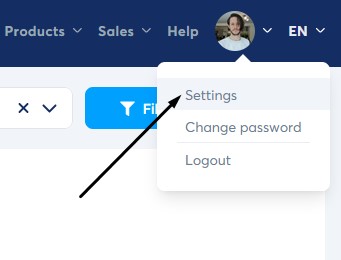

Then, in the left sidebar, click on Payment gateways and click Connect next to Stripe:
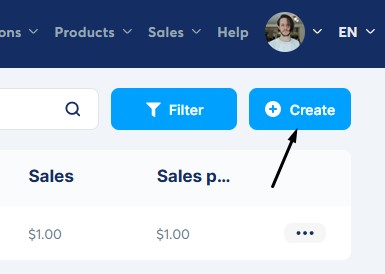

Log into your Stripe account when prompted and click Connect:
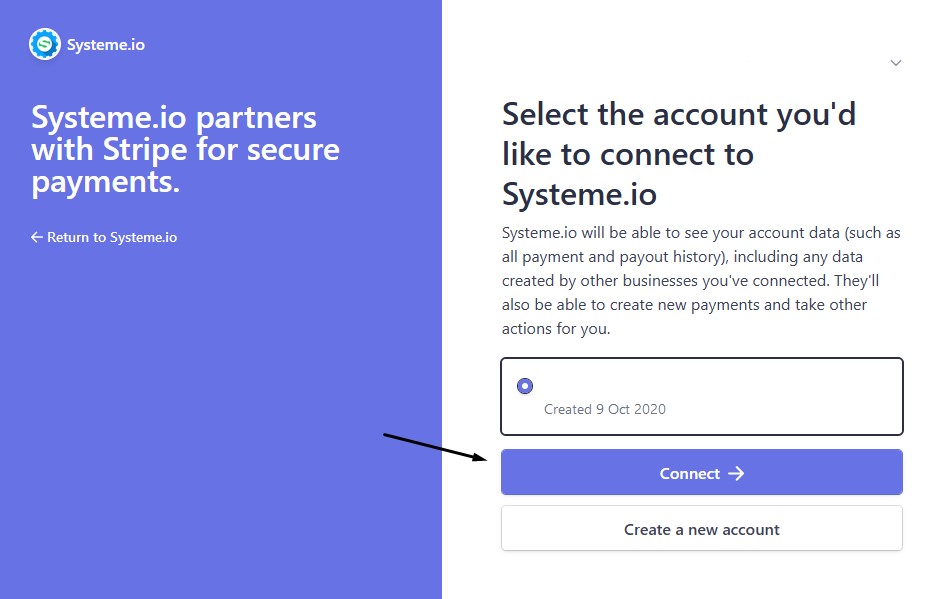

Step 2. Create Your Email Campaigns
There are two email campaigns we need to set up. One is for sending a free lead magnet, and the other is for sending a digital product if they buy it.
Here are the steps:
Click on Campaigns from the Email dropdown:
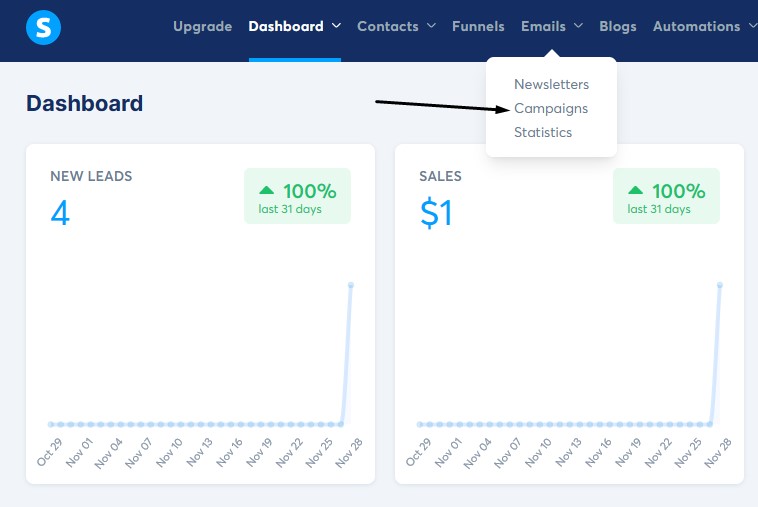

Then click Create:
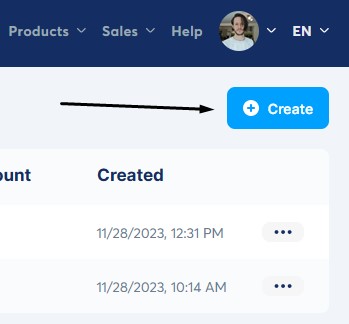

Give your email campaign a name and click Save:
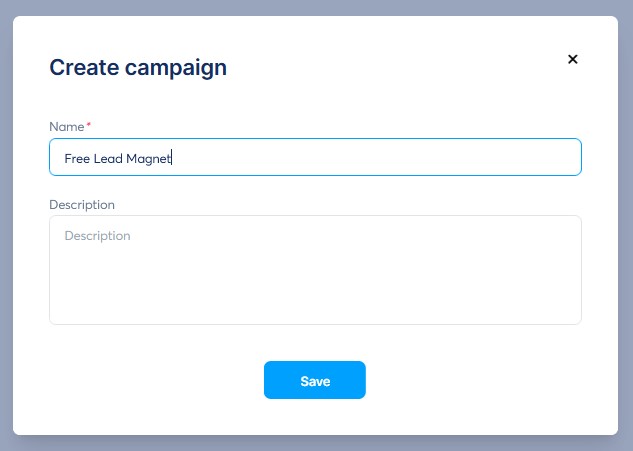

Click Create again, fill out the details, then click Save:
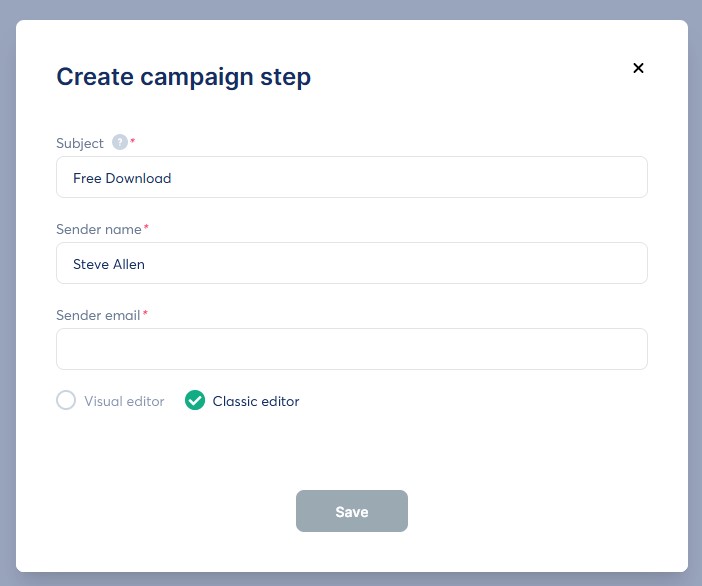

You’ll see a page below where you can write your email to welcome new subscribers. Also, make sure to upload your free lead magnet to the Attachments box, then click Save:


Repeat this step to create an email for your digital product. Don’t forget to attach the PDF in the Attachments. The email might look something like this:
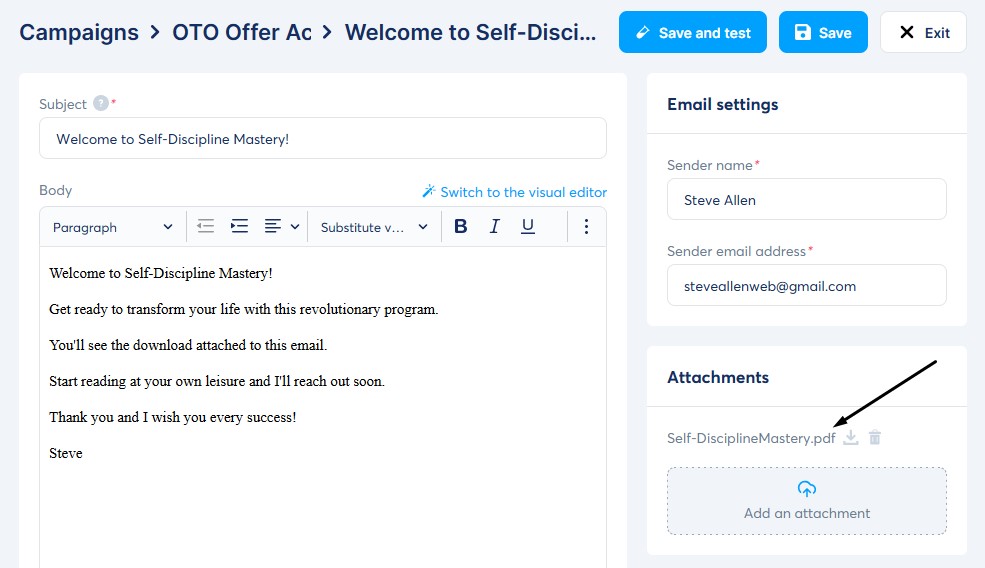

That’s it for the email campaigns. On to the next step.
Step 3. Create a Tag to Trigger a Product Purchase
Now, we need to create a tag that will automate the sending of the digital product email campaign.
Click on Tags under the Contacts menu item:
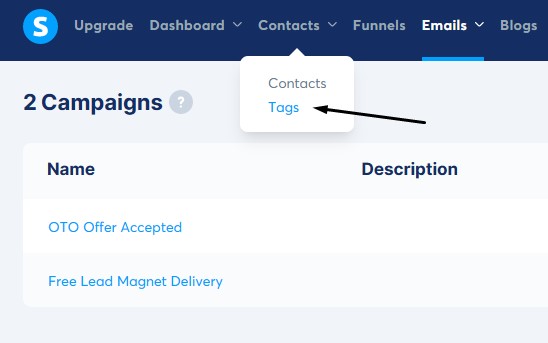

Then click Create:


Name your tag and click Save:
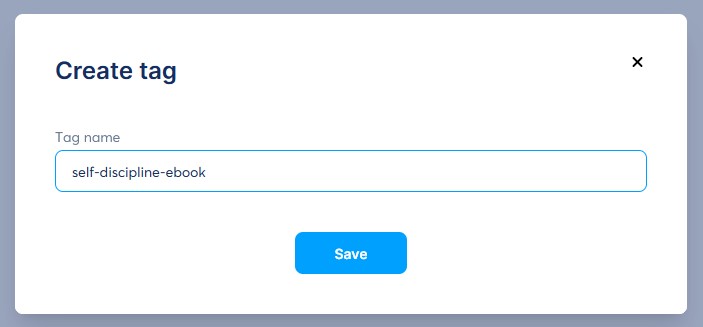

This is all you need to do for the tags for now. Now, on to the funnel itself.
Step 4. Create Your Funnel Stages
Click on Funnels from the main menu:
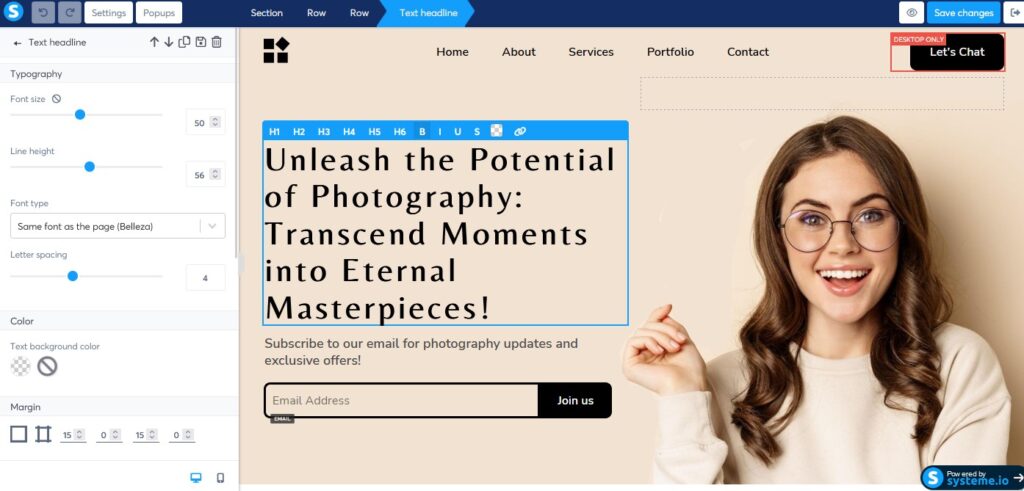

Then click Create:
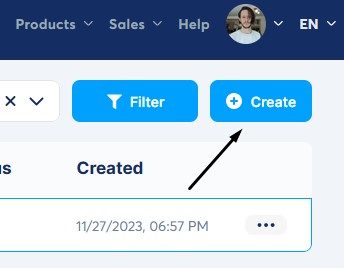

You’ll see the popup below. Give your funnel a name, select the Sell option, and choose your currency. Then click Save:
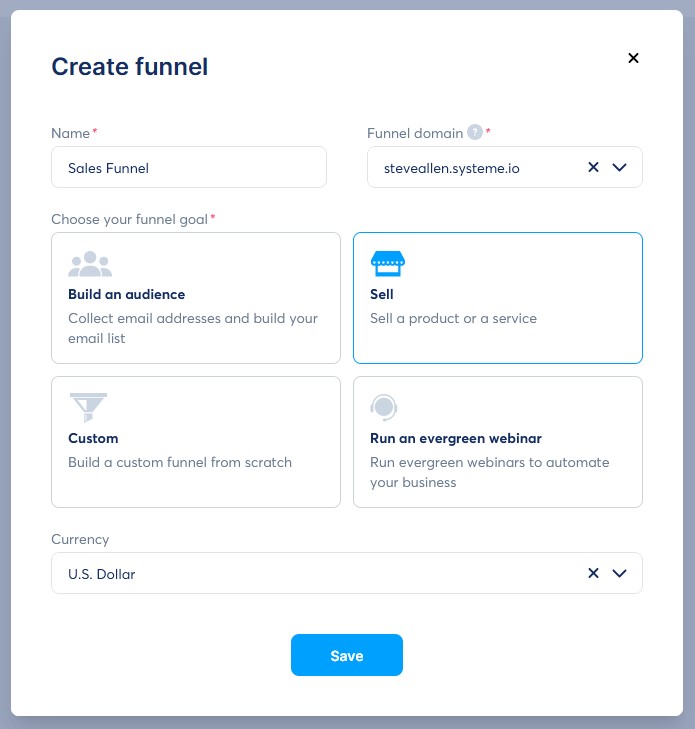

Next, you’ll see a list of pages on the left and settings on the right:
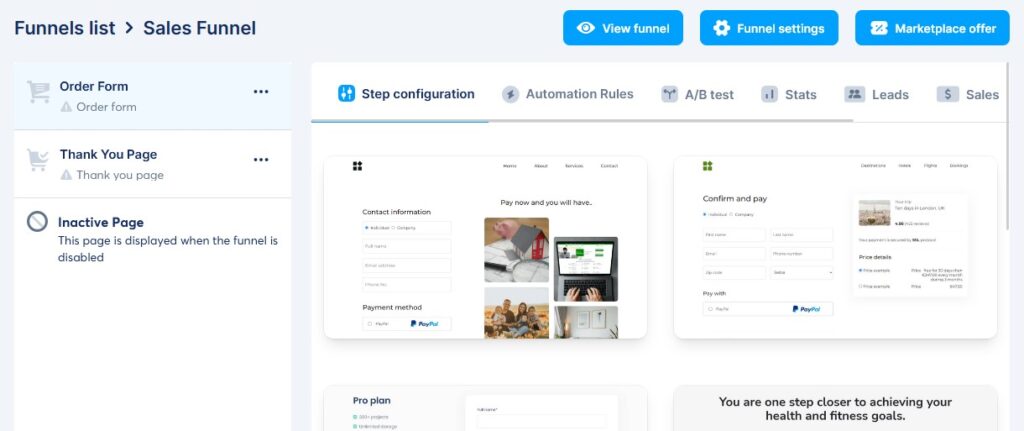

Let’s start by adding a landing page to collect email addresses.
Step 5. Create the Landing Page
To add a page, click on Add step:
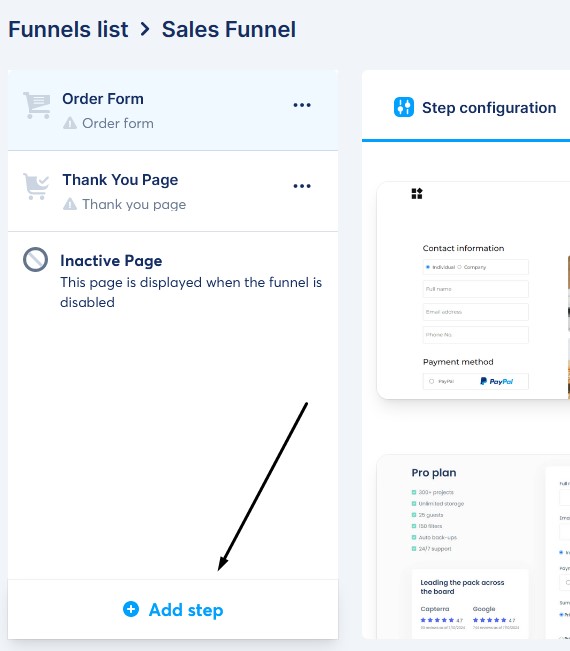

From the popup, choose a name for the lead magnet, select Squeeze page from the drop-down, and click Save:


You’ll then want to drag the landing page step to the top:
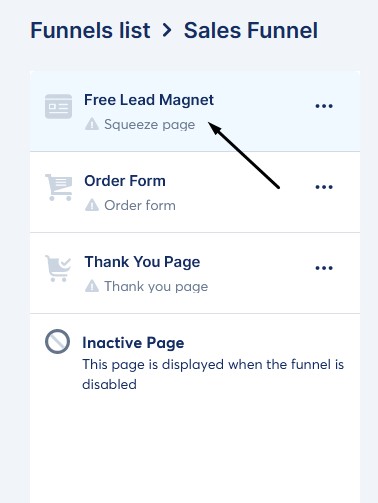

On the right, you see a collection of landing page templates. Hover over the one you like and click Select:
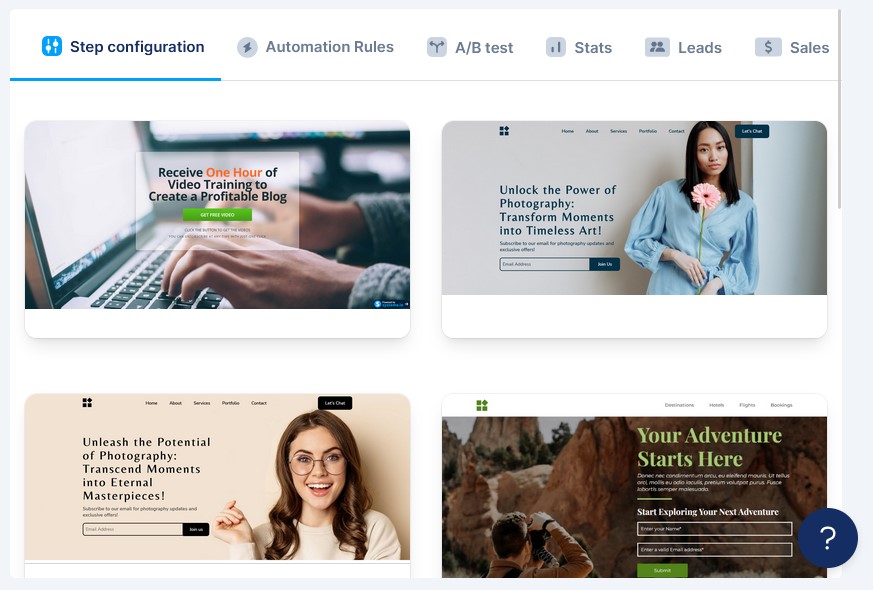

Next, add the URL Path for the landing page:
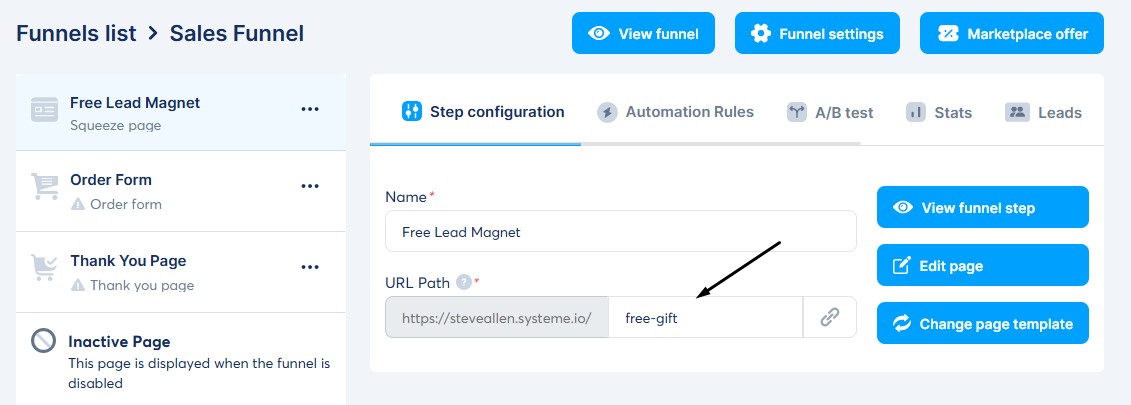

Now, you’ll want to customize your page with the right text and maybe an image of your lead magnet. Click on Edit page to get started:
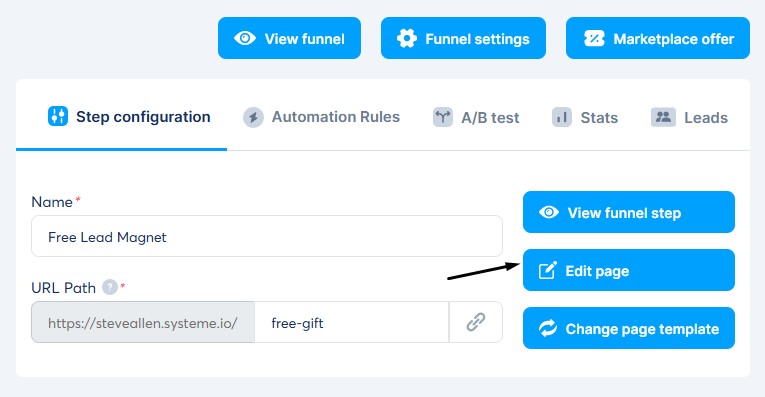

You simply click on the elements you want to edit and start typing. The settings on the left allow you to change colors or add new elements like images:


The last thing to do for the opt-in form to work properly is to make sure Submit form is selected when the button is clicked and To the next step is selected for contact registration:
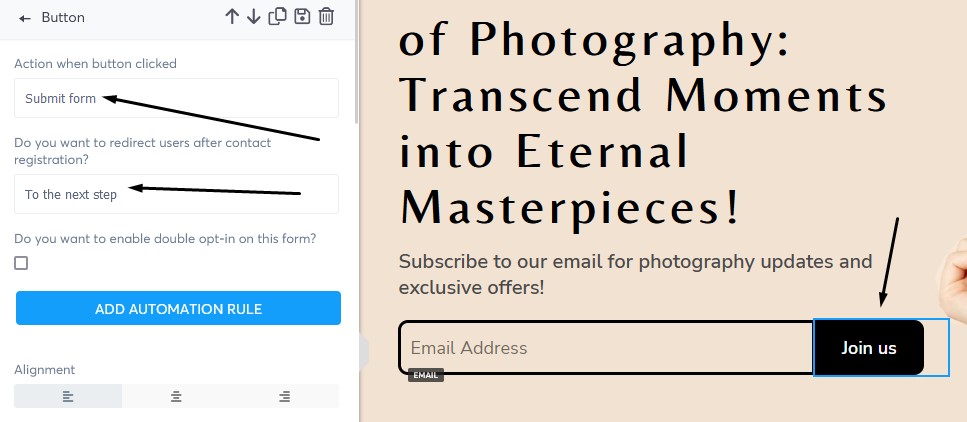

Finally, click on Save changes and then the Exit button:
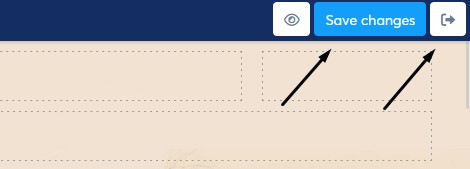

Here’s the end result of my landing page:
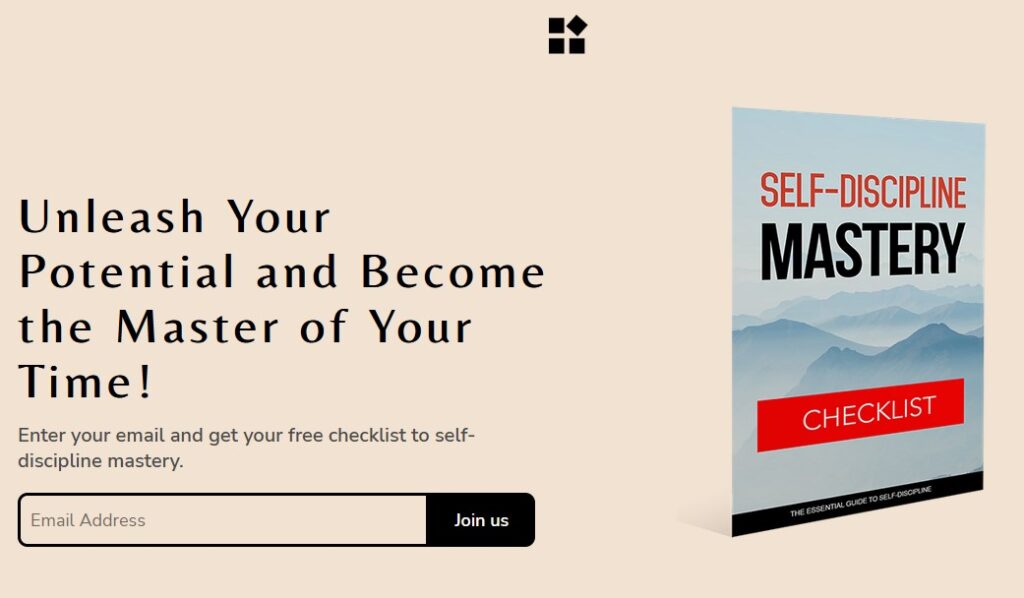

I simply made it more minimal, removing the navigation menu and adding an image to my lead magnet.
Step 6. Create the Sales Page
Next, it’s time to create the sales page. The steps are practically the same as for the landing page. Add a New step, give the page a title, and choose Sale page from the dropdown:
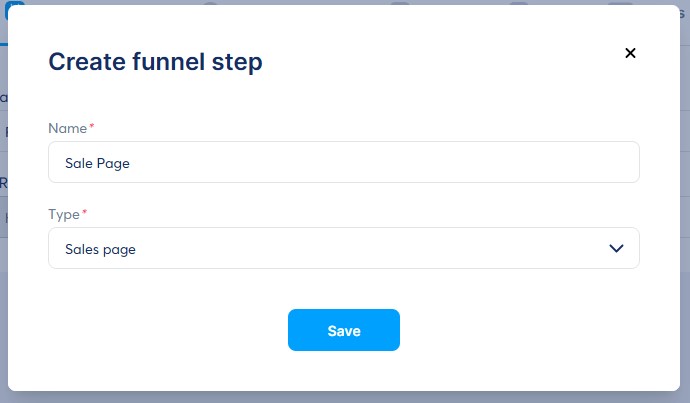

The sales page step needs to be second on the list:
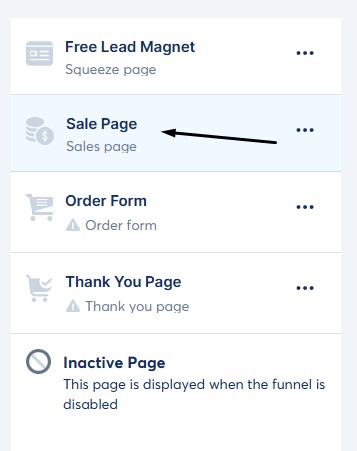

Choose a sales page template and click Select:
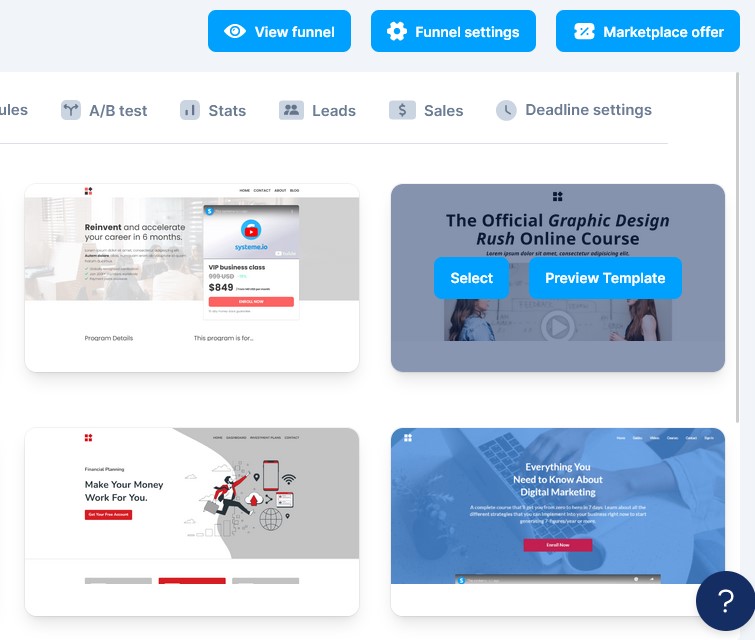

Next, add the URL Path for the sales page and click on Edit page to start customizing:
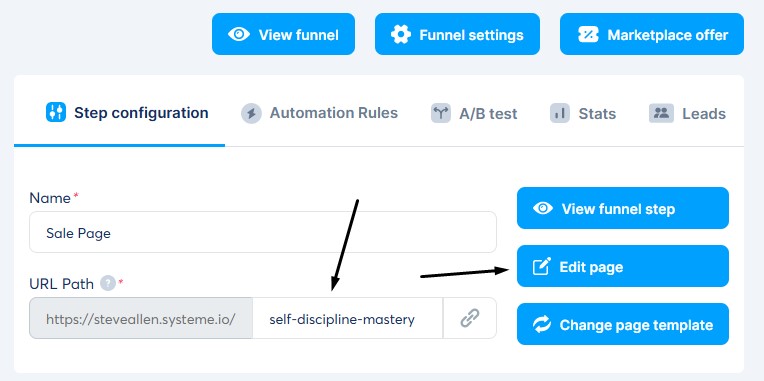

There should be an order button on the sales page, which needs the Next step URL option selected under Action when button clicked:
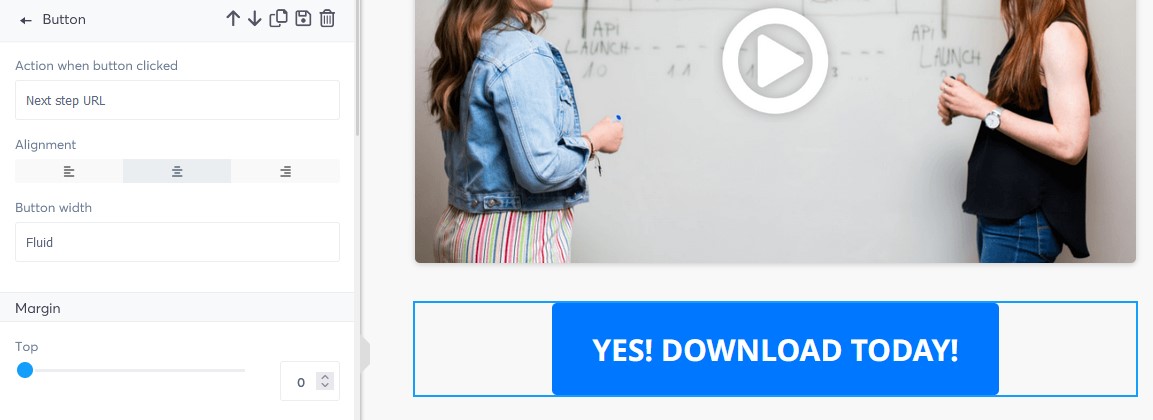

Here’s what my sales page looks like:
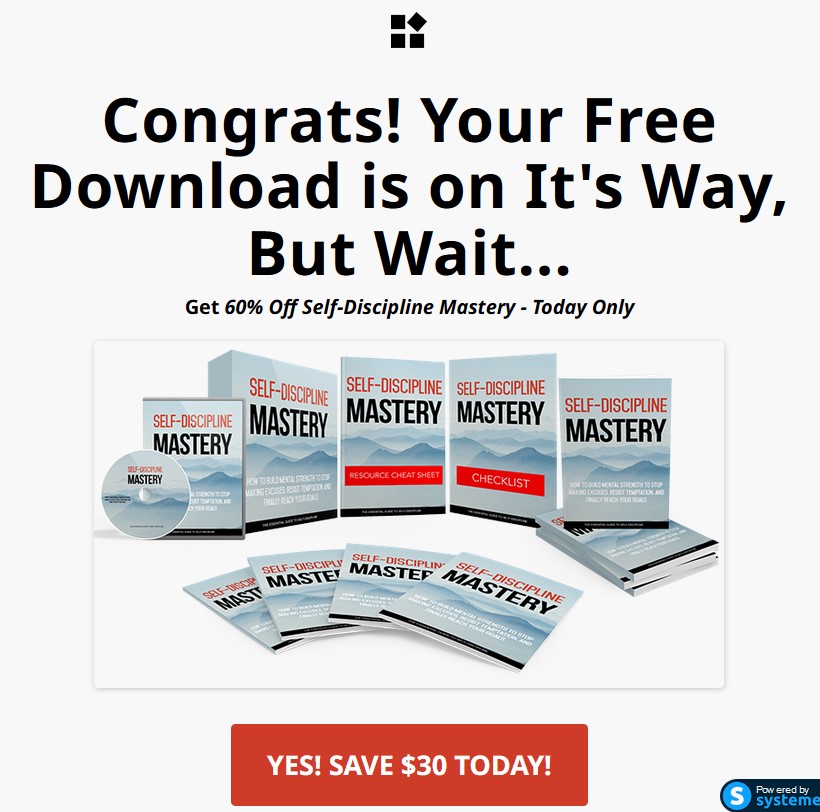

Step 7. Order Form Settings
Now we’re onto the order form, where you’ll set the URL Path, choose the tag you created for the Resources, and set your Price plans:
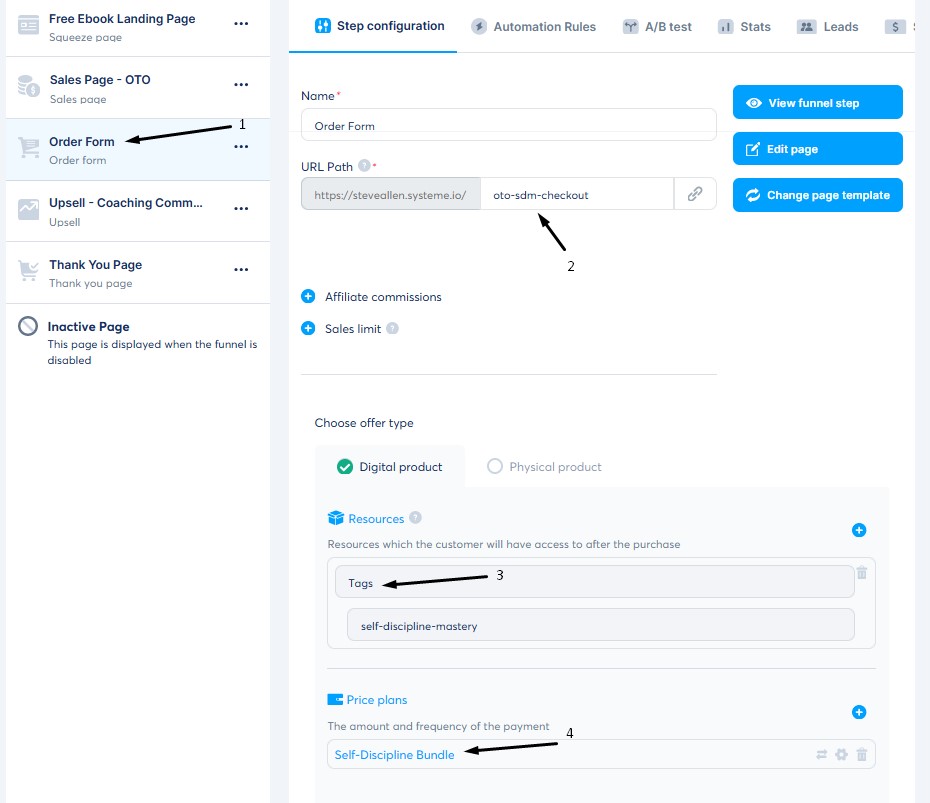

For the Price plans, click the Plus icon, then Create a new one:
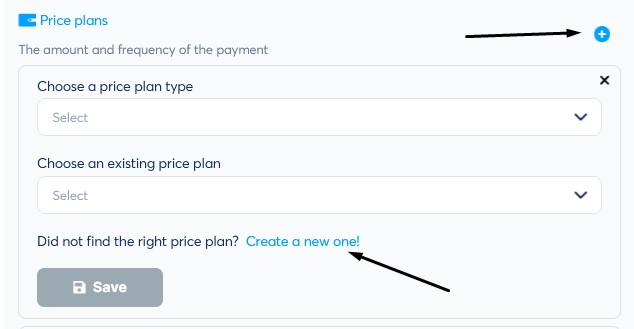

Fill out the details, choose One-time payment for the Price plan type and enter the Payment amount, then click Save:
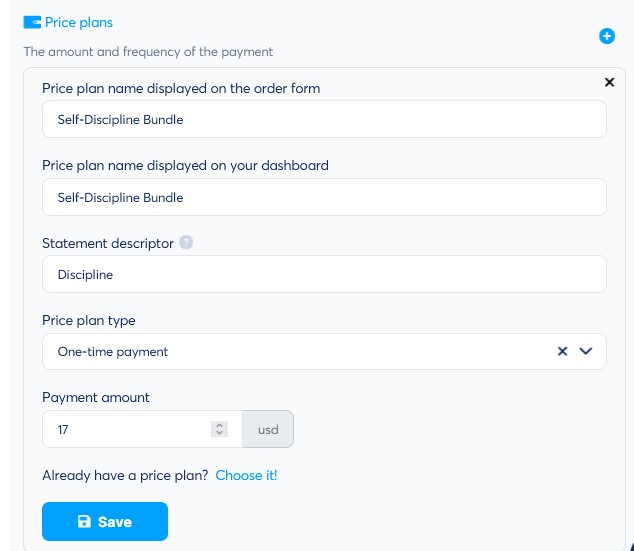

Step 8. Thank You Page Settings
For the thank you page, choose your template, enter the URL Path, and edit the design if needed. The thank you page also needs to go last in the sequence:
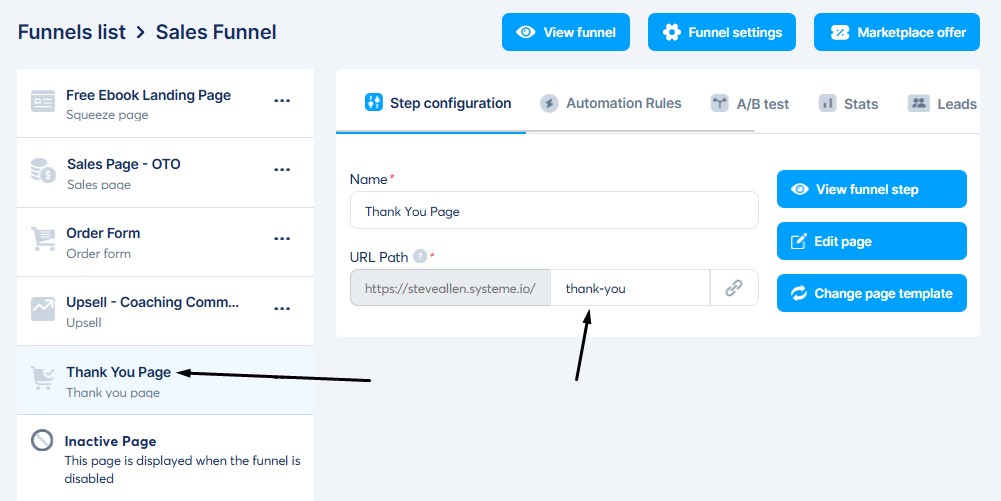

Here’s what my thank you page looks like:
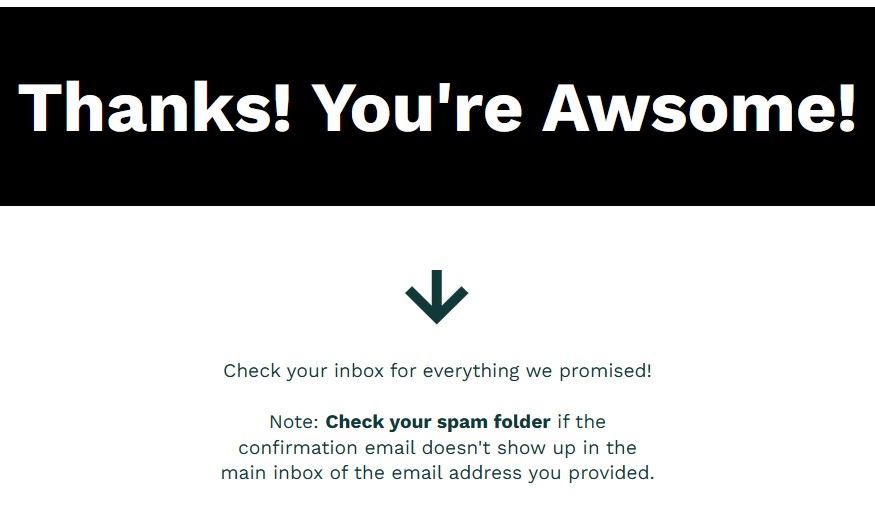

Step 9. Adding an Upsell
An upsell needs to go after the order form. Add the relevant details like this:
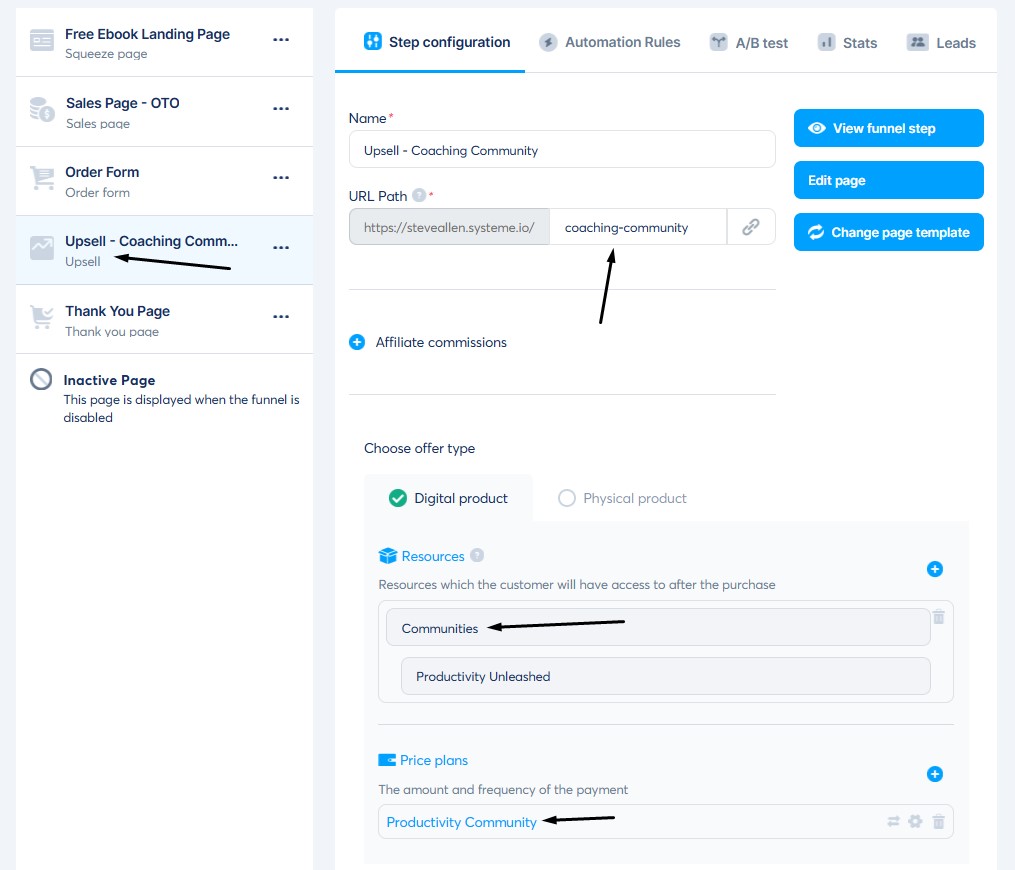

For the Resources, this is what people will get access to if they purchase the upsell. I’ve chosen Communities, which gives people access to a Facebook-like group inside Systeme:
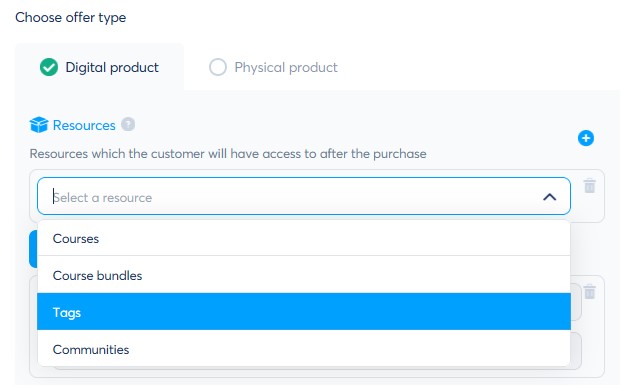

For the Price plan type, I’ve chosen Subscription with a 30-day trial period, $29 per month after:
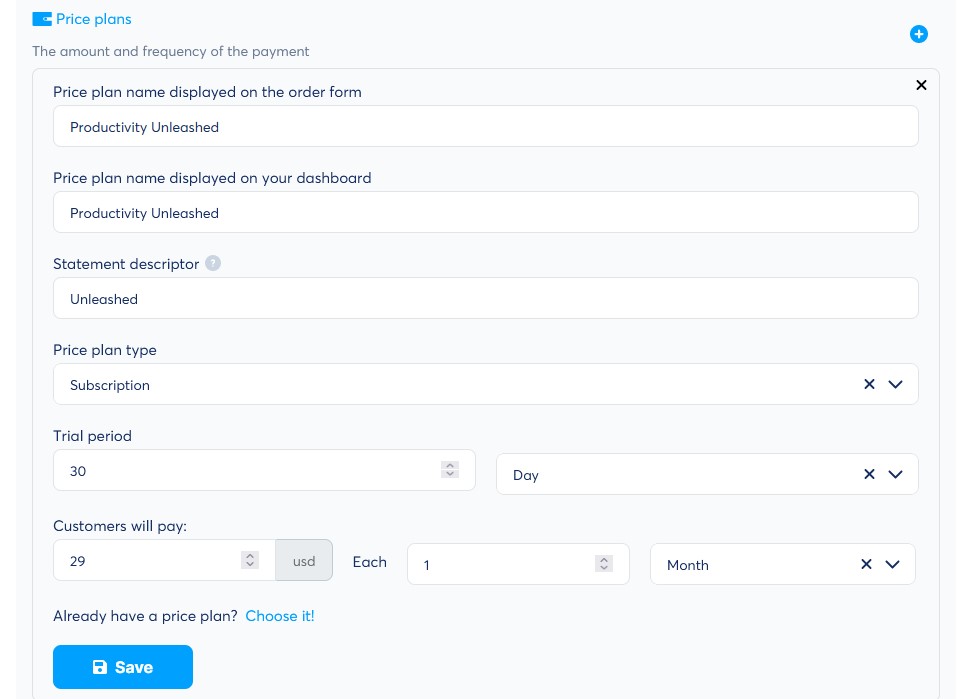

If you want your upsell to be a community, you’ll have to create it first from the Products dropdown. Or you can choose courses if you prefer:
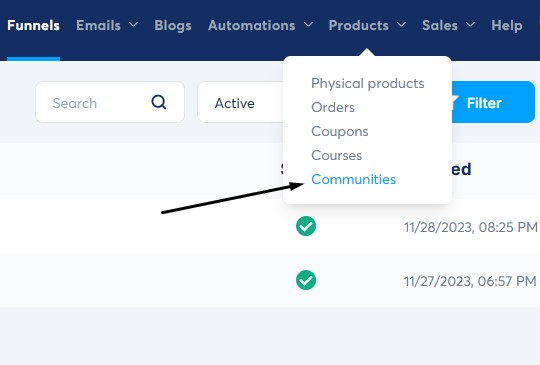

Step 10. Automations
The last step is to connect everything up with automations. These are used to trigger the email campaigns when something happens.
Let’s do the digital product using rules. Click Rules under the Automations menu:
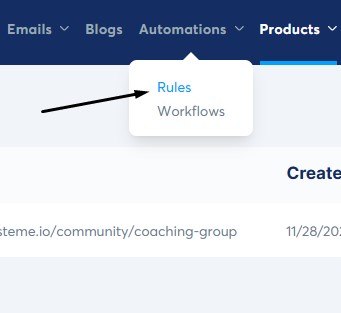

Then click Create:
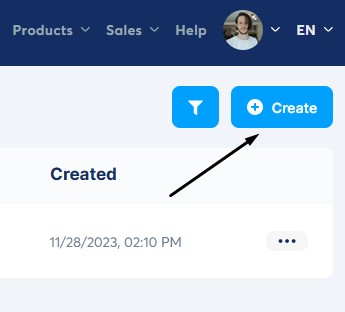

Click the Plus sign next to Trigger:
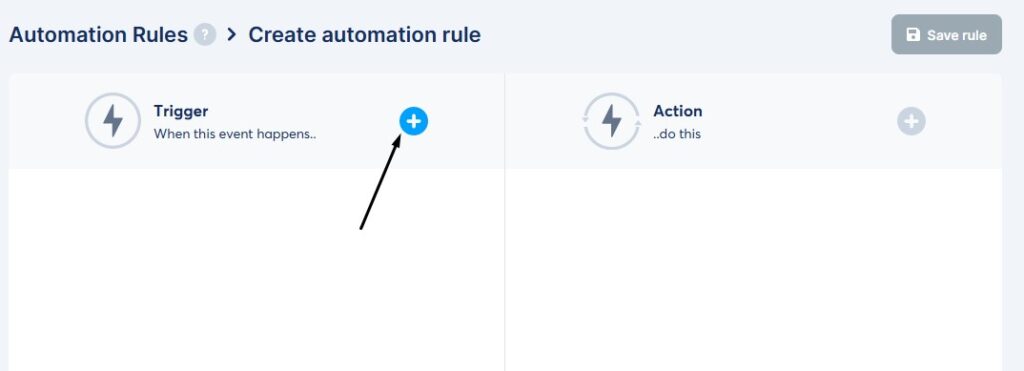

Select Tag added from the options and choose the tag you created earlier:
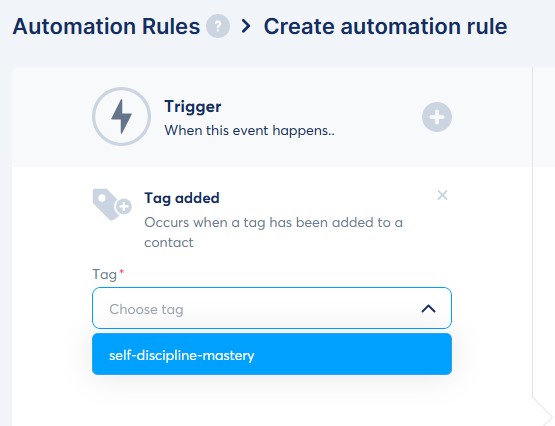

Then under Action, select Subscribe to campaign and choose the email campaign that sends the digital product:
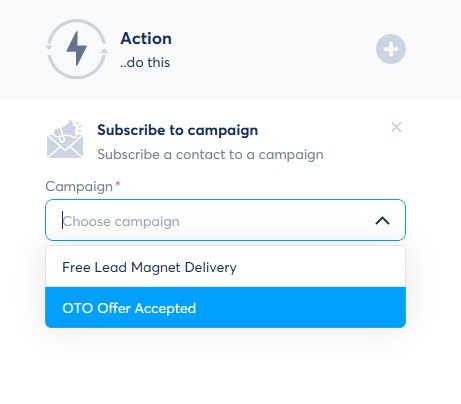

Now, when someone purchases the digital product, the tag is added, which will trigger the email to be sent with their download.
The last automation is to deliver the lead magnet. To do that, click on Workflows under the Automations menu:
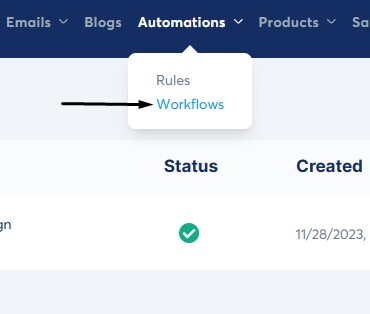

Click Create and enter a name for the Workflow:
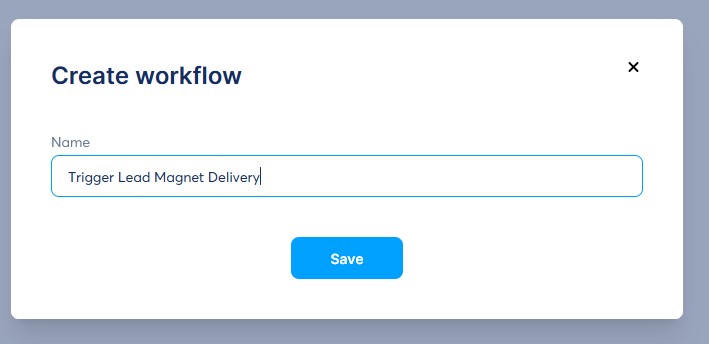

Your Workflow will need to look something like this:
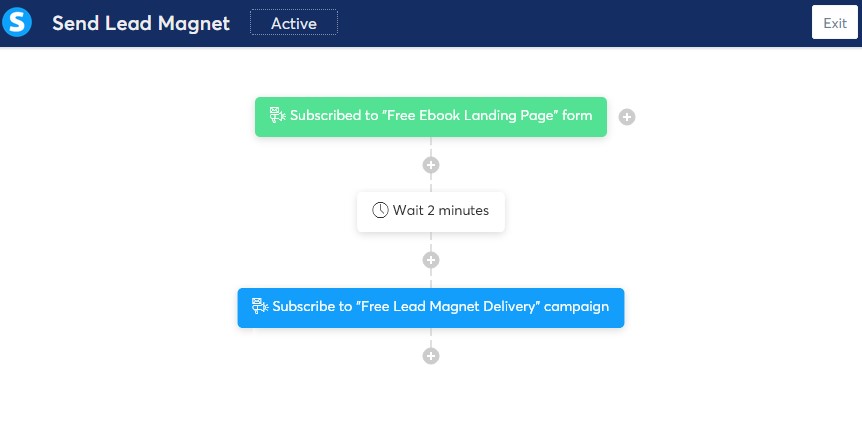

The first is the Trigger. Select Funnel form subscribed and the lead magnet email campaign:
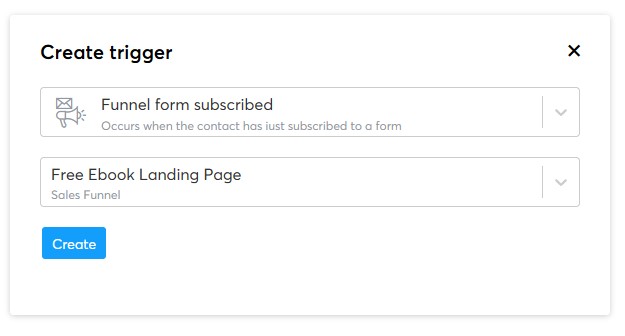

The second is a delay of 2 minutes, but this is optional.
The third step is an Action:
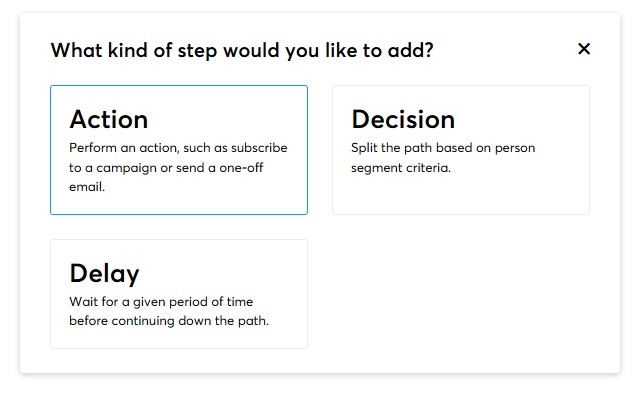

The Action needs to be Subscribe to campaign:
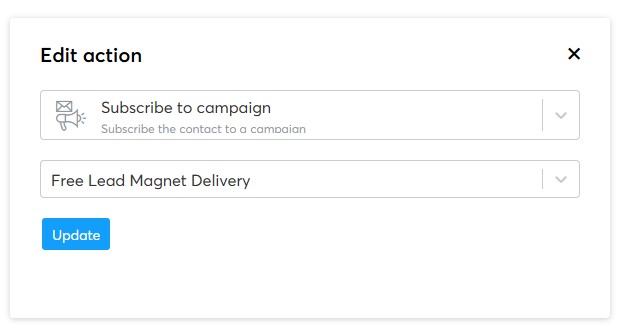

That’s it! You have successfully created a free sales funnel with Systeme. It’s recommended you go through the funnel process yourself to test that everything works.
I went through mine and received all the correct emails:


Best Free Sales Funnel Software to Consider
The following list is the tools I looked into when writing this tutorial.
Here’s a table of the best software that allows you to create free sales funnels.
Along the top are the stages in the funnel process and whether the tool has features for that funnel stage or if you can use something else.
Platform
Landing Page
Sales Page
Checkout
Payment Processor
Upsells Order Bumps
Email Automation
Fee on Sales
Systeme
Systeme
Systeme
Systeme
Stripe
Systeme
2,000 Subscribers free
2.9% + 30¢
Payhip
Payhip
Payhip
Payhip
Stripe
Payhip
EMS Integration
5% + Stripe fees
Podia
Podia
Podia
Podia
Podia
Not free
100 Subscribers free
8% + Stripe fees
WordPress
Page builder
Woo Commerce
Woo Commerce
Stripe
CartFlows
FluentCRM
2.9% + 30¢
Systeme – Best Overall
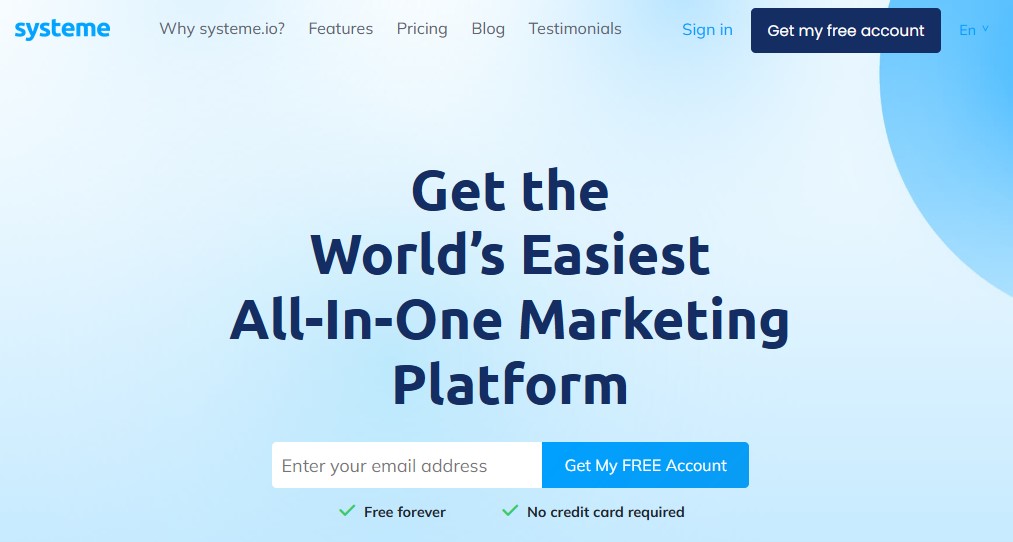

As we’ve seen in the tutorial above, Systeme offers a ton of amazing features for building sales funnels completely for free.
You can grow an email list of 2,000 people for free and send unlimited emails. There are various product types, such as courses, digital products, and even communities.
Furthermore, the free plan offers unlimited online course students and community members.
Other features include:
- Fully functioning website
- Custom domain
- Create unlimited blog posts
- Use your own Stripe account for low fees
- Deadline funnel for higher conversions
- Order bumps
- A/B testing
Payhip – Low Fees and Easy to Use
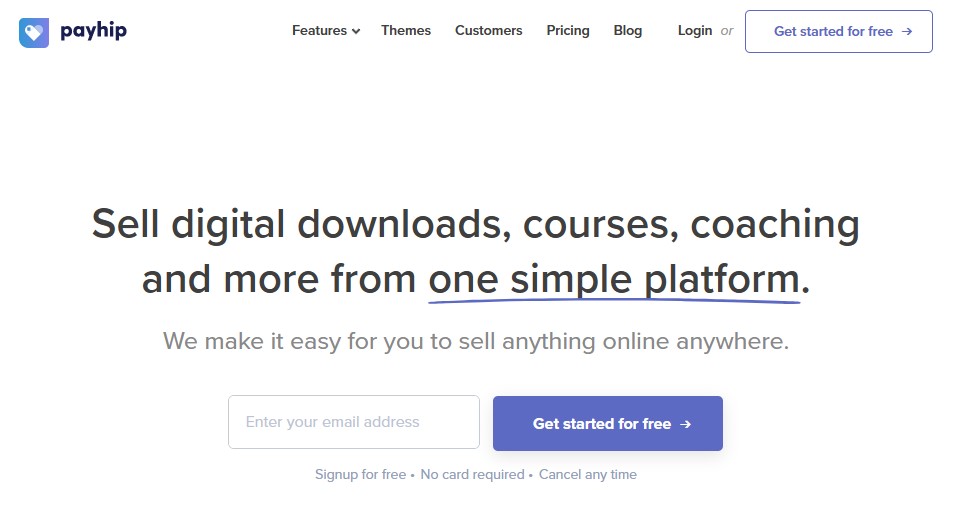

Payhip was the runner-up because it offers features similar to Systeme, is reasonably priced, and is easy to use.
This sales funnel builder allows you to offer different types of products like courses, memberships, physical products, coaching services, and more.
All features are available in the free plan, and they have a fixed transaction fee of 5%, which is on top of the payment processing fee using Stripe or PayPal.
You can also use PayHip as your entire website and storefront, start a blog, and add a custom domain.
Email campaigns will need to be integrated with an external service provider, such as Aweber or Mailchimp.
Podia – Great for Communities
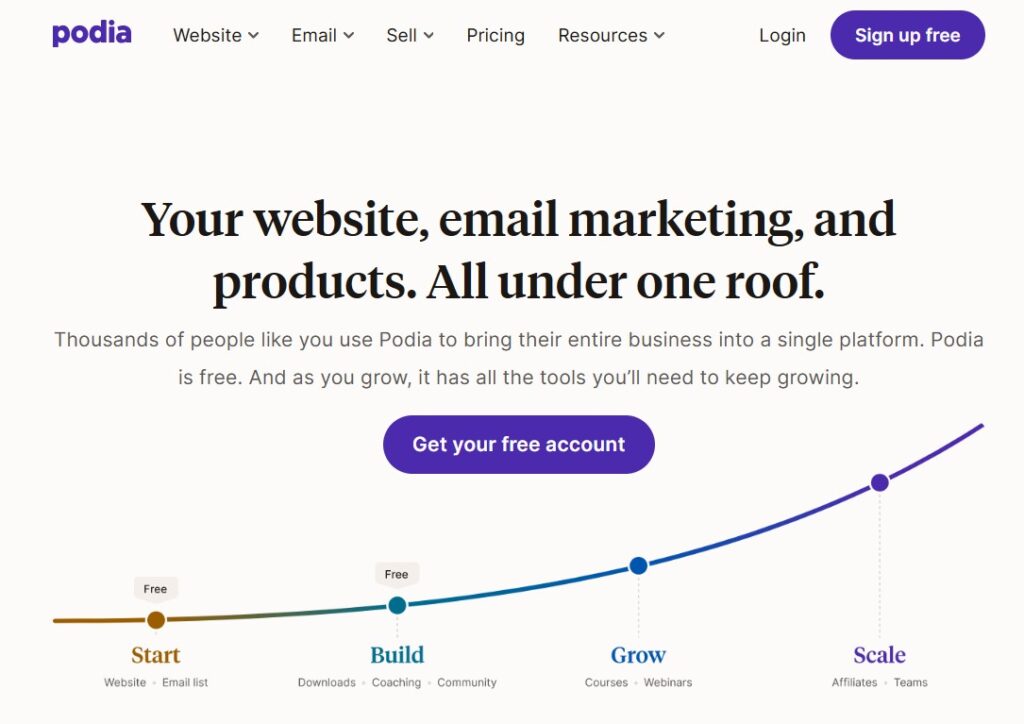

Podia is another great option for building a free funnel and selling digital downloads.
Specifically, Podia is best suited for online courses and paid communities. However, you’ll need a paid plan to publish a course to the public.
You can start by selling digital products and a community, then offer courses once you start earning income.
There’s a website builder and advanced email marketing tools to build an email list.
Transaction fees in the free plan are 8% plus the fees from Stripe.
WordPress + WooCommerce + CartFlows – Most Advanced Solution
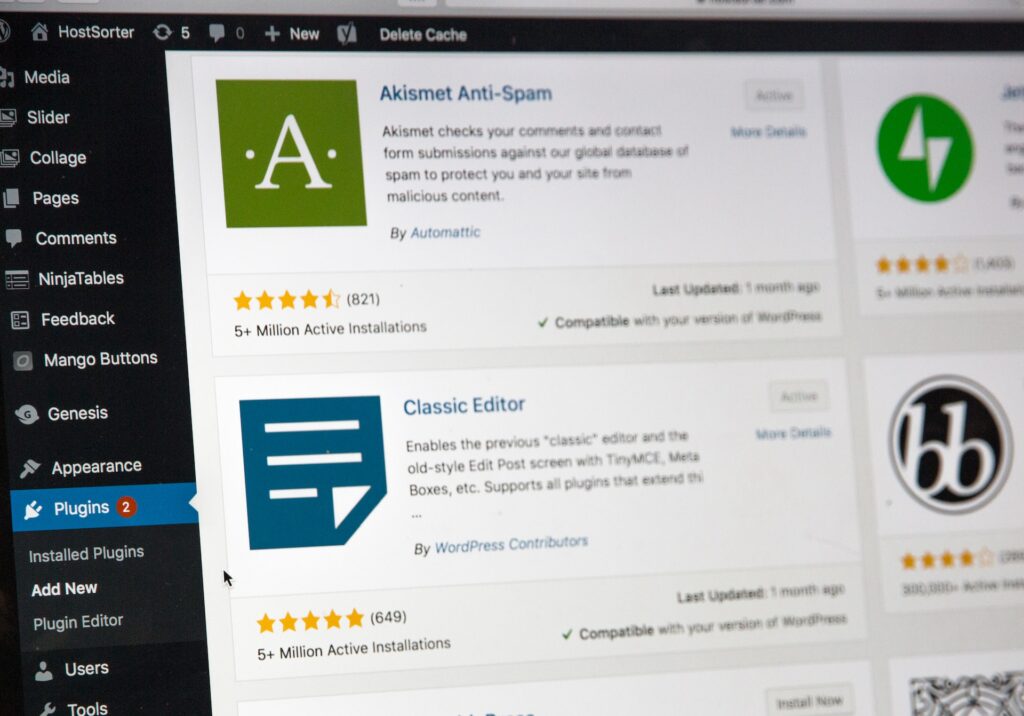

The last option is to build a custom setup using WordPress. This is by far the most advanced approach with the most available free features at your disposal.
However, this will take substantial time to get everything in place and will require a steep learning curve to master.
That being said, here’s what your setup could look like:
- Landing pages and sales pages built with a page builder tool like GenerateBlocks or Elementor
- Sales pages and the checkout using WooCommerce
- Stripe for the sales process so low transaction fees
- Upsells using the free version of CartFlows
- Marketing automation using the free version of FluentCRM
Conclusion
In summary, a free sales funnel is an excellent way to convert more leads and sales. However, most tools charge high monthly fees to get the best features.
Not with Systeme. This funnel-building tool offers a lot of advanced features in its free plan, providing you with everything you need to get started.
Join Systeme here to easily build a free sales funnel fast.

